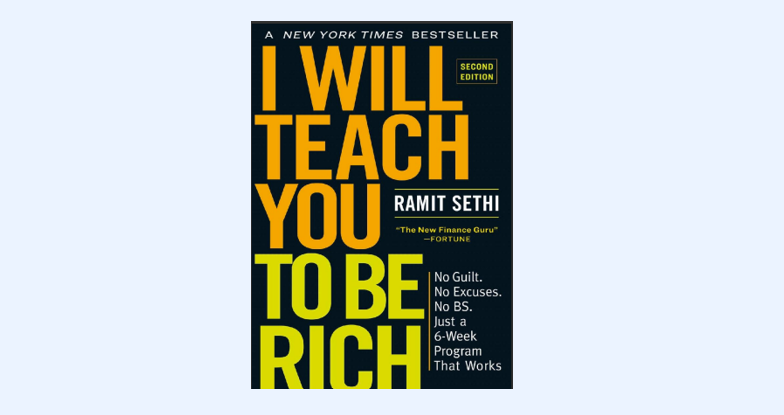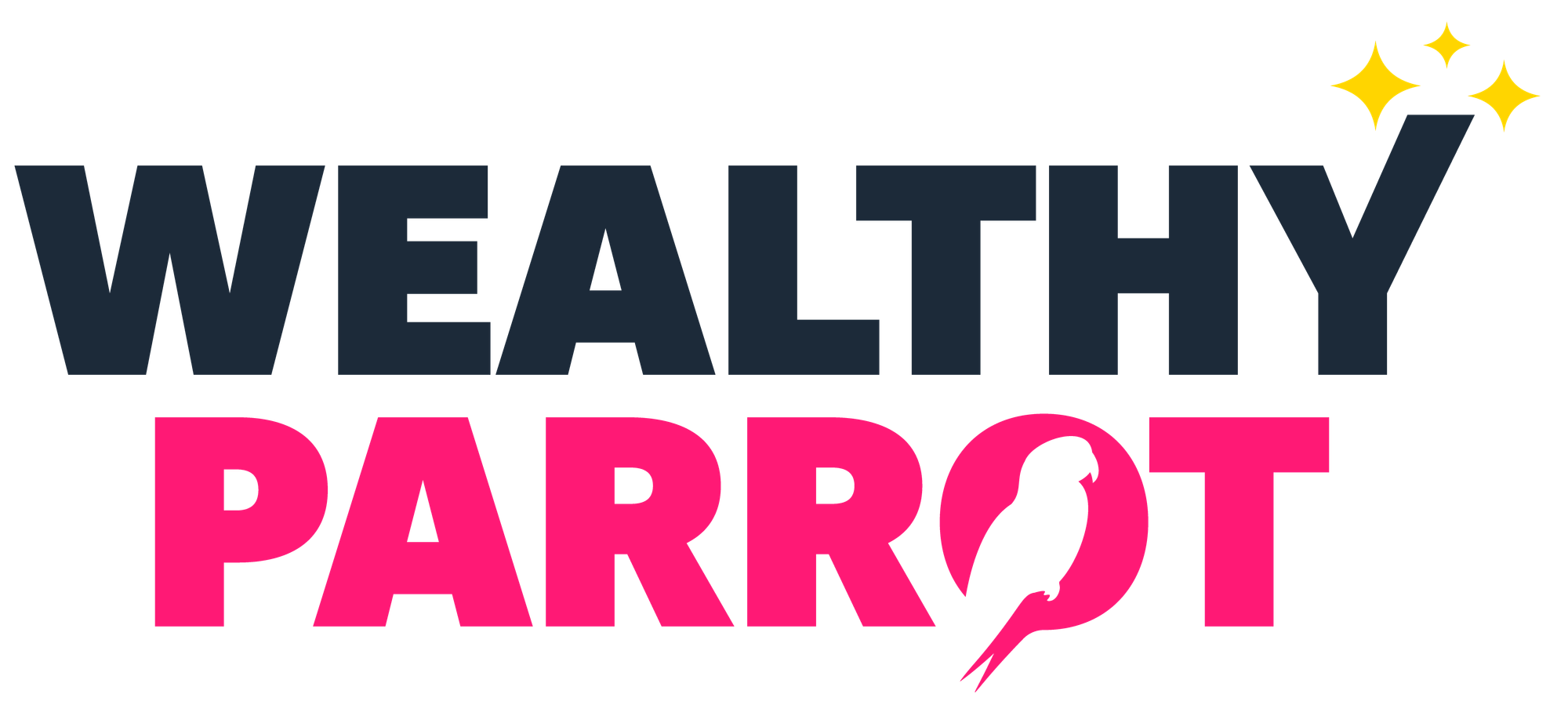Book review: I will teach you how to be rich

There is a high chance you heard the name Ramit Sethi before, as he's not just an author of a couple books (like the one part of this review), but he's the host of "I will teach you to be rich" podcast and host of the 2023 Netflix series titled "How to get rich".
Ramit doesn't have a background in Finance, but both his education and career are centered on psychology, sociology and marketing. And I think you can see this in the book "I will teach you to be rich" as it definitely has a different approach in the concepts covered. Overall, the book promises a bullet proof 6-weeks program to learn how to be rich.
- Title: I Will Teach You to Be Rich: No Guilt. No Excuses. Just a 6-Week Program That Works.
- Author: Ramit Sethi
- Originally published: 2009
- Pages: 352
The book in a nutshell
The book starts with a quite bold cover and covers different aspects of what Rami defines a 6-week program that works (to make you rich). The main concepts are:
- Optimize your credit cards: and use them responsibly to maximize benefits and build a good credit score.
- Choose the right bank accounts to avoid fees and earn the best interest rates.
- Start to invest, even with small amounts, by setting up a 401(k) and a Roth IRA.
- Conscious spending: identify what you truly value, spending lavishly on those things, and cut costs mercilessly on everything else
- Automate your finances to make saving and investing effortless
- Financial advisors often fail to outperform the market
- How to build and maintain an investment portfolio
- The final chapter addresses various aspects of personal finance that impact a rich life, including relationships, large purchases like a car or a house, and salary negotiation. It also touches upon the importance of philanthropy.
My review
This book is a bit controversial to me. While overall I read quite a few good points, I also read a few things that are not practical or not correct. Let me explain. The book starts with a very bold cover and promises to transform your life in just 6 weeks. There are two common threads throughout the book:
- A strong marketing stamp. Every other page you’ll find a quote of a user that supposedly managed to change behavior and improved his life thanks to the book. Assuming that it’s all true, I am not sure it was really needed.
- A suggestion to negotiate pretty much anything you can, from bank fees to salary increases. This might work in US but not in other countries. Also, not everyone would necessarily feel comfortable having this aggressive approach to every single item or service they buy.
The book has 9 chapters, 6 of which can be used as guideline/to do list for the 6-week program promised in the book cover. Each of these chapters walks the reader through a topic (e.g. pick the right bank), the issue (e.g. banks trick you) and a solution (e.g. negotiate the fees). At the end of the chapter there is also a proposed set of steps and the amount of time to allocate to execute it. The language of the book makes it accessible to everyone, although at times I had the feeling of having a long-winded person talking to me – sorry Ramit.
Ramit does manage to give a panoramic view of the basic personal finance concepts that are indeed needed to improve your life and, on the long run, improve greatly your finances. This quote from the book is a good summary of what you can expect “I Will Teach You to Be Rich is about using money to design your Rich Life. I’ll teach you how to set up your accounts to create an automatic financial infrastructure that will run smoothly with minimal intervention. You’ll also learn what to avoid, some surprising findings from financial literature (is real estate really a good investment?), and how to avoid common financial mistakes. And you’ll start taking action instead of debating minutiae. All this will take you just six weeks—then you’ll be on the road to being rich.”
You won’t find extensive analysis on past performance of assets or detailed explanations of every asset class, as this book is really meant to be an intro to (some) personal finance concepts. In that sense the book does succeed. But then again, I struggle with accepting things like “A Rich Life means you can spend extravagantly on the things you love as long as you cut costs mercilessly on the things you don’t” – What if I want to eat out for dinner every night but can’t afford it? Would it even be healthy? Or also “Beware of the endless search for “advanced” tips.” – but then the book is filled with literally negotiation scripts to use when calling provider X, and also suggests to keep track of each call you make to their customer service (including who you talked to, date, etc.).
Probably the most controversial topic to me in the book is budgeting. Again, quoting the book, “This isn’t about creating a fancy budget that you’ll have to maintain every day for the rest of your life. I hate budgeting. “Budgeting” is the worst word in the history of the world.” But then “Under savings goals, allocate money toward goals where you have a general idea of how much it will cost. It doesn’t have to be exact, but try to get a ballpark figure and then save every month toward that goal.” – This sounds very much like budgeting to me.
Overall, this book almost look like a personal financial book through a psychology lens. Both in the way the book is sold and written. Which is in line with the author's background.
If you have never read anything on the topic before, this could be one of the books to start from. Probably not my first choice, but also not my last. If you are a bit more seasoned on the topic, not sure you would really find this book appealing and maybe get an overview of the concepts by watching the TV show.
.





